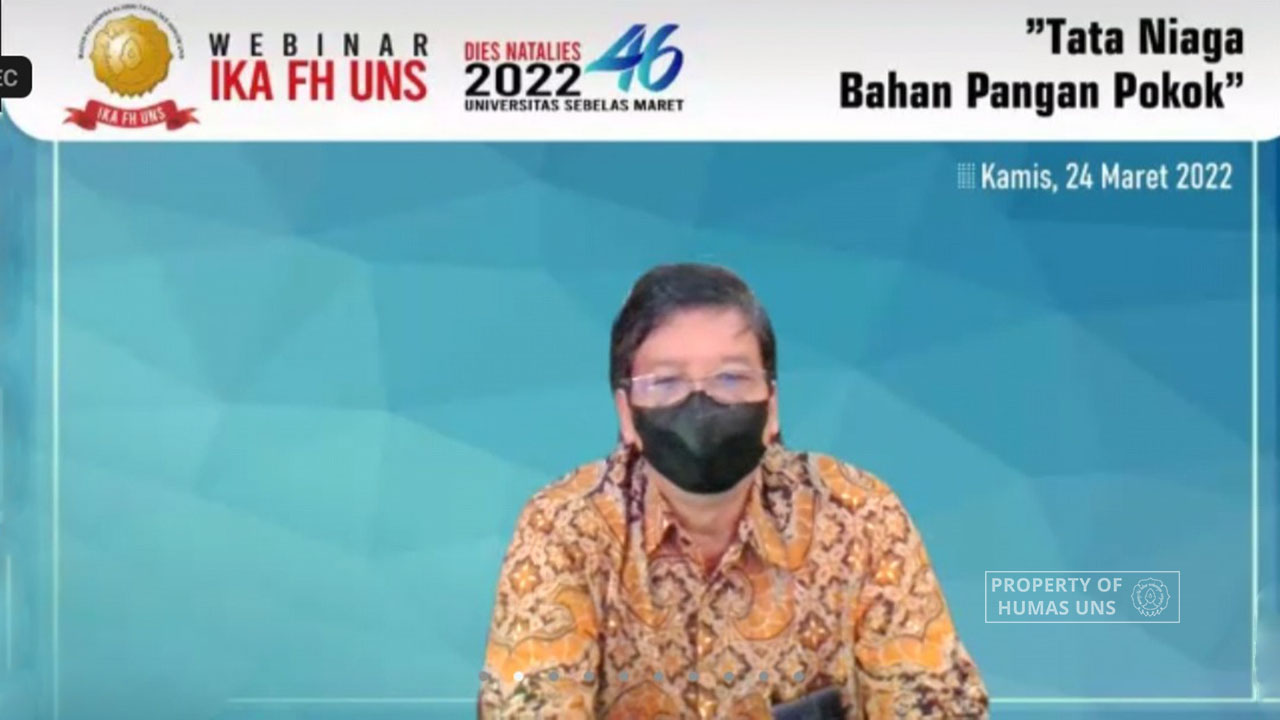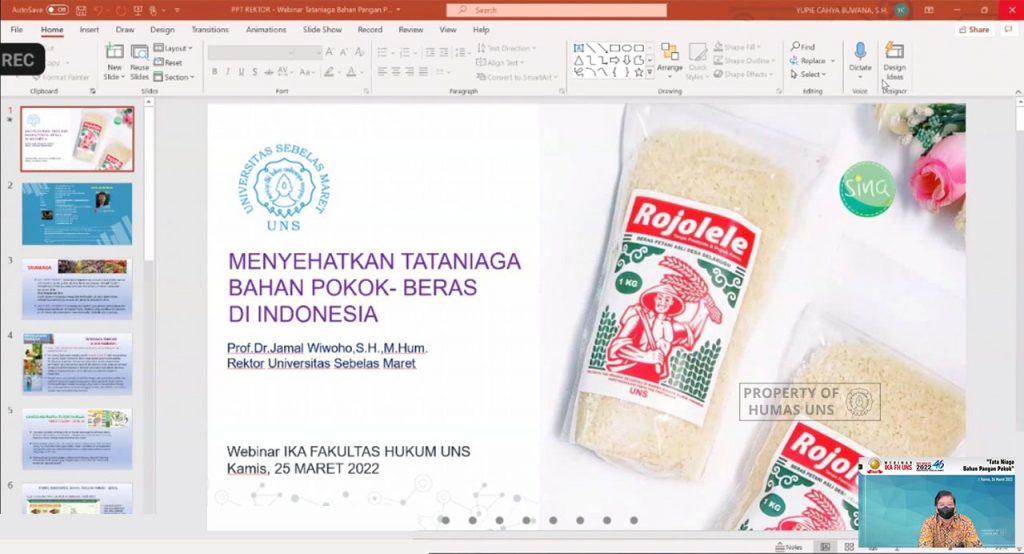UNS — The Rector of Universitas Sebelas Maret (UNS) Surakarta, Prof. Dr. Jamal Wiwoho, S.H., M.Hum shared material on how to improve rice distribution in Indonesia as a speaker in the webinar held by the Faculty of Law (FH) UNS Alumni Association (IKA). The webinar was held online through the Zoom Cloud Meeting on Thursday (24/3/2022) as a series of activities to celebrate UNS 46th Anniversary.
Prof. Jamal stated that the Covid-19 pandemic had affected the management of staple foods in Indonesia, including rice distribution. The phenomenon has the potential to reduce the production level, cause price instability, and consumer preferences and behaviors. “Thus, it needs to be balanced with the food management system that could adjust to these changes,” Prof. Jamal stated. Prof. Jamal offered several strategies to solve the issue. “First, expanding harvest and rice production. To ensure that consumption for the following years is secured,” Prof. Jamal suggested.
The next suggestion is for the government to evaluate the food estate policy, whether it could increase production or damage the environment and its ecosystem. This policy should be followed by the policy on rice prices involving the farmers to strengthen their position in the distribution channel. Prof. Jamal emphasized that collaboration with farmers needs to be pursued from production to the distribution process because the price level at the farmer and processing level fluctuates from year to year.
“This uncertainty makes farmers hesitant to sell their yields, especially during the harvest season, because the price tends to be lower,” Prof. Jamal added.
The Rector continued his explanation that the government also needs to take a role in the rice distribution process because nine provinces in Indonesia are experiencing a rice deficit and are buying rice from other provinces with rice surplus. Prof. Jamal also encouraged the government to improve the role of BULOG in purchasing and controlling rice transfer from surplus areas to deficit areas.
Another option offered by Prof. Jamal is to reduce Indonesian people’s dependence on rice through diversification of local foods by substituting the source of carbs from rice with corn, sago, cassava, potatoes, and other sources of carbohydrates produced naturally and locally as a form of the efforts to maintain the local wisdom.
“Lastly, because the highest trade and distribution margin in Indonesia is imposed on retailers, the only means to reduce this margin is by controlling the rice supply chain. This step can be implemented by reducing the supply chain to increase efficiency, increase farmer’s profits, and protect consumers,” Prof. Jamal concluded. Humas UNS
Reporter: Lina Khoirun Nisa
Editor: Dwi Hastuti


